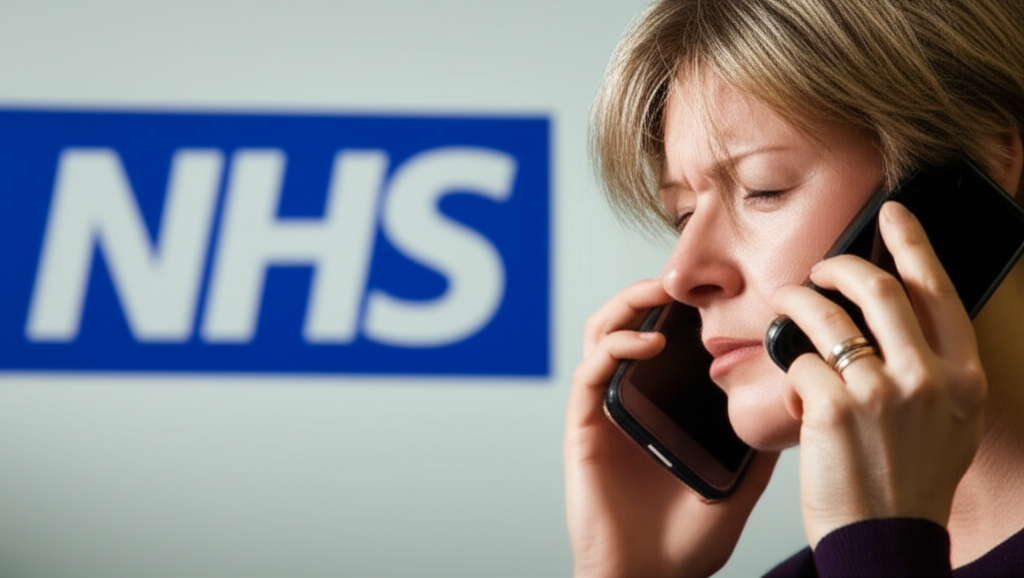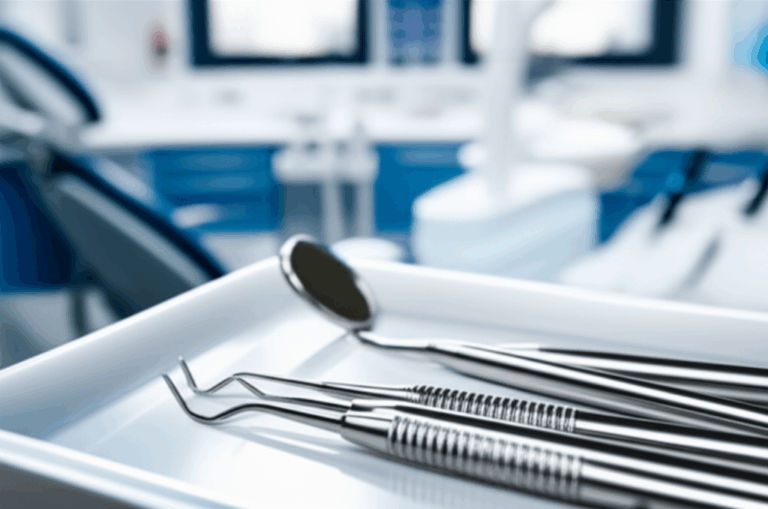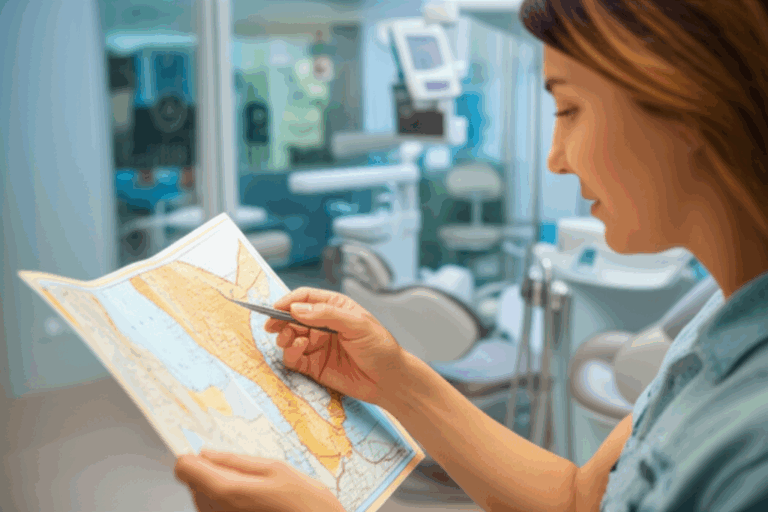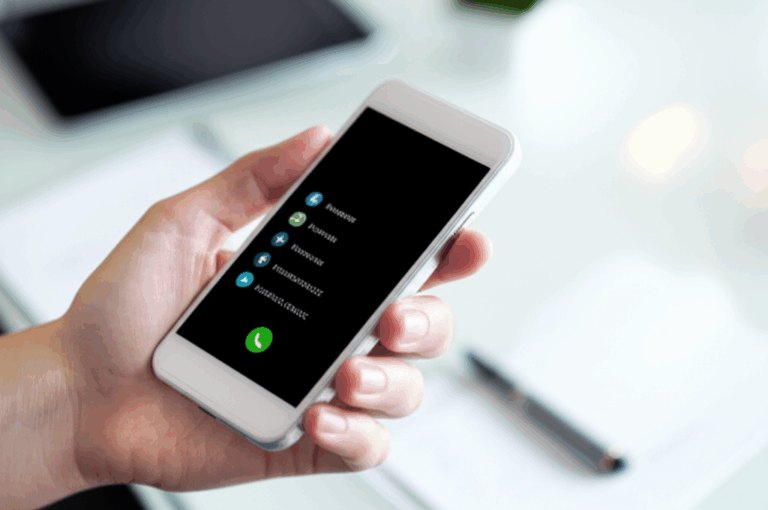
How to Get an Emergency NHS Dentist Appointment: Your Step-by-Step Guide
That strong pain in your jaw. The scary swelling that keeps getting bigger. Maybe your child broke a tooth playing football—or you wake up with a face so puffy you barely recognize yourself. Dental emergencies never come at a good time. If you’re reading this, you probably need answers—fast. What do you do first? Is your problem really that urgent? Will the NHS dentist see you, and when? You’re in the right place.
I’ve made this easy guide so you can take charge in a dental emergency, work your way through the NHS system, and get the help you need.
In This Article
- Is My Dental Problem an Emergency?
- First Steps: How to Get Emergency Dental Care on the NHS
- What Happens Next? Understanding the NHS 111 Triage and Referral
- What To Expect at Your Emergency Dental Appointment
- NHS Dental Charges: What Will I Pay for Emergency Treatment?
- Managing Pain and Symptoms While You Wait
- When Should You Go to A&E for Dental Issues?
- What If There Are No Appointments? Exploring Private Emergency Options
- Your Next Steps: Take Charge of Your Dental Health
Is My Dental Problem an Emergency?
Let’s answer the big question first: Is your problem a real dental emergency? NHS services help the most serious cases first—so it’s good to know what those are.
What Counts as a Dental Emergency?
Here’s a quick checklist. If you have any of these, it’s time to get urgent help:
- Strong and never-ending pain—Pain that makes it hard to sleep, won’t get better with painkillers, or goes to your ear, jaw, or neck.
- Face swelling—Red, hot, or puffy face; swelling moves to your eye, neck, or makes it hard to breathe or swallow.
- Bleeding that won’t stop—Blood won’t stop after a tooth comes out, after getting hurt, or dental work.
- Accident/Injury—A tooth is knocked out, loose, or broken (especially right after an accident), or jaw gets hurt.
- Dental infection or abscess—Painful, swollen spot in the mouth with pus, fever, or feeling really unwell.
- Lost important dental work—A filling or crown falls out and causes strong pain, or is cutting your cheek or tongue.
What’s NOT an Emergency?
- A broken tooth that doesn’t hurt
- Lost filling/crown but no pain or sharp part
- Toothache that comes and goes or stops with painkillers
- Looks only (whitening, small chips)
- Slight hurts from hot, cold, or sweet things
Not sure? That’s normal. If you’re ever in doubt—or if things quickly change—call NHS 111 to get advice.
First Steps: How to Get Emergency Dental Care on the NHS
You’re in pain. You need help now. Who do you contact?
Step 1: Call NHS 111
For urgent dental problems in the UK, NHS 111 is the way to get emergency dental help. It’s open all day, every day—even weekends and holidays.
How to Use NHS 111:
- Phone: Call 111 from any phone.
- Online: Go to 111.nhs.uk to start an online check (good for less serious problems or if you like to type).
Why 111?
You can’t just show up at most emergency NHS dental places. You have to use NHS 111 first. They ask questions to find out how bad your problem is and tell you what to do next.
What Will They Ask?
Be ready with:
- Your name, date of birth, NHS number (if you have it)
- Your address and where you are
- Health history, medicines, allergies (to advise about safe painkillers)
- What your dental problem is: When it started, how bad, how it affects you
You might wait on hold or answer robot questions first—but stick with it! If things get worse while waiting, call again.
What Happens Next? Understanding the NHS 111 Triage and Referral
So, you’ve called 111 or filled out their form online. What next?
The Triage Process: What’s Going On
- Book you an urgent local NHS dentist visit (if one is open)
- Give you advice for pain and looking after yourself
- Tell you to go to A&E (hospital) if it’s really serious
Good Things to Know
- Don’t just go to an emergency dentist—call first. That’s the rule, and saves you wasting a trip.
- Sometimes you have to wait, especially in places with fewer clinics. You might be told to try again later, or go further away.
- Appointments go fast on weekends or holidays, so call early if you can.
- Keep your phone nearby, as the dentist place may call to ask more, or to book you in.
Demand is high at main times—sometimes you’ll get seen the same day, sometimes you wait up to two days. If you don’t get an appointment and things get worse, call back to 111.
What To Expect at Your Emergency Dental Appointment
You have your appointment sorted. What happens when you get there? Letting you know what to expect can help calm you.
What’s the Point of an Emergency NHS Dentist Visit?
Think of it as “First Aid for Teeth”—they focus on fixing your main issue quickly:
- Stop strong pain or bleeding
- Treat any serious infection risk
- Fix broken teeth or lost filling/crown
- Stop things getting worse
Common Emergency Treatments
- Exam and X-rays (if needed)
- Temporary filling or cover for a hole or sore spot
- Tooth pulled out (if it can’t be fixed)
- Cleaning an abscess and antibiotics (for infection)
- Pain advice—what medicine to take, how to help at home
This is just to get you out of trouble for now. You’ll likely need to go see your normal dentist soon for a full fix.
Tips for Your Appointment
- Bring your NHS number (if you know it), list of medicines, and allergy info.
- Bring money or a bank card; you may need to pay the Band 1 charge (explained next).
- Get there on time—and be patient. Emergencies can make everything run late.
Sometimes, your dentist may suggest seeing a specialist, like an implant dentist if you lose a tooth. That will be sorted later, not at the emergency visit.
NHS Dental Charges: What Will I Pay for Emergency Treatment?
A big worry: “Will this cost loads?” Here’s what you need to know.
NHS Dental Costs for Emergencies
In England (April 2024):
- Emergency dental care is Band 1.
- Current price: £26.80
- This pays for the check, advice, pain help, a prescription if needed, temporary fillings or removing a tooth.
- If you need more big work later, you’ll pay again as a new treatment.
Who Gets it Free?
Some people don’t have to pay for emergency NHS dental care. You get it free if you:
- Are under 18 (or under 19 in full-time school/college)
- Are pregnant or had a baby in the last year
- Get certain benefits (like Universal Credit, Income Support)
- Have a valid NHS exemption certificate
Bring proof, as you’ll need to fill out a form.
How Do I Pay?
Most dental clinics take card, but take cash just in case. If you can’t pay right then, they may send you a bill. Don’t skip payment—it can affect later care.
Managing Pain and Symptoms While You Wait
If you’re waiting for a call or your appointment is tomorrow, waiting is hard if you’re hurting. Here are some ways to cope while at home:
Safe Pain Relief
- Ibuprofen and paracetamol (if not allergic)—take as the pack says. You can use both, swapping them around for stronger relief.
- Cold pack: Hold an ice pack or cold cloth to your cheek to help swelling.
- Saltwater rinse: Stir a teaspoon of salt into warm (not hot) water. Rinse gently—don’t swallow. Good for mild gum swelling or soreness.
- Eat on the side that’s not sore, soft foods only, avoid hot, cold, sweet, or spicy food.
Don’t do this:
- Don’t put aspirin on your tooth or gums—it will burn.
- Don’t use heat packs—they can make swelling worse.
- Don’t poke around the sore spot with fingers, toothpicks, or other things.
Watch Your Symptoms
If the swelling grows, you get a fever, or can’t breathe or swallow—these are bad signs. Call 111 again or go to A&E.
When Should You Go to A&E for Dental Issues?
Most dental problems—even bad ones—should be seen by a dentist. But, sometimes, hospital is safest.
Go to the Emergency Room If:
- It’s hard to breathe or swallow. Infections can block your airway fast.
- Bad, spreading swelling on your face or neck, going towards your eye or down your throat.
- Bleeding you can’t stop after 10–15 minutes of pressure.
- Big injury: Tooth comes out, broken jaw, or major face cut—plus other injuries.
Don’t Go to A&E For…
- Usual toothache or lost fillings
- Chipped or missing tooth unless you also get hurt or have bad swelling
- Problems that aren’t making you feel much worse
Remember: Going to A&E for non-urgent dental pain means you’ll wait ages, and they can’t give full dental help.
What If There Are No Appointments? Exploring Private Emergency Options
NHS emergency appointments get very busy, especially in some areas. If you can’t get an appointment—and your pain is really bad—you could try a private dentist.
When to Try Private Emergency Dental Care
- NHS 111 can’t give you a fast or close visit
- You’re ready and able to pay much higher prices for quicker help
- Your pain or swelling is very bad, but it’s not an A&E situation
How Much Does Private Help Cost?
- First urgent check: £80–£300 (usually)
- Treatment (pulling tooth, filling, root canal): Can be £100–£1,500+
- Most want payment up front. Some offer payment plans.
How To Find a Private Emergency Dentist
- Search “private emergency dentist near me”
- Use dental directories or websites
- Some national companies have online urgent booking
If you need more work later, places like a digital dental lab or china dental lab may help your dentist, but you won’t contact them yourself.
Will Private Care Change My NHS Treatment Later?
No. If you go private in an emergency, you can still get NHS treatment for other things. Save your paperwork just in case.
Your Next Steps: Take Charge of Your Dental Health
Main Points
- Move fast for bad pain, swelling, or bleeding. Don’t wait—it can get worse.
- Call NHS 111 for emergency dental treatment. Always use their advice first.
- Be ready for your visit. Bring ID, money or proof you don’t pay, and know your symptoms and meds.
- Help yourself at home. Follow safe pain advice, and don’t ignore any changes.
- Think of private care if no NHS visits are open. Know the cost, check reviews first.
- Don’t skip aftercare. Emergency visits stop the main issue; you need regular dental care to avoid big trouble later.
Feeling Ready for Next Time
Handling a dental emergency is tough, but now you have clear steps. Trust your gut—if in doubt, ask for help. Keep your dentist’s details handy, try to sign up at an NHS dentist in advance, and keep up healthy habits for yourself and your family to avoid future emergencies.
Frequently Asked Questions & Resources
Q: Can I walk into an NHS dental clinic for emergencies?
No—usually you must call NHS 111 first to be checked.
Q: How fast can I get seen?
Sometimes right away, but often 24–48 hours, especially if less serious or it’s a busy area.
Q: What if I call 111 and get no appointment?
If things get worse, call again. Or, try local private clinics or your own dentist if open.
Q: Can children get NHS emergency dental care?
Yes—kids are seen as a priority for injuries, strong pain, or swelling.
More Useful Reading:
- Curious about emergency repairs? Find out more about a dental ceramics lab.
- Want to know about denture repairs after tooth loss? See our info on a removable denture lab.
Final Thought
Dental emergencies are scary, annoying, and painful—but you’re not alone. The NHS is ready to help, and now you know how to get seen quickly and safely.
Smile with confidence—you can handle a dental emergency. And, if you can, go for regular check-ups to catch problems early and avoid last-minute panic!
Take care of your teeth; you only get one set!
Sources:
- NHS England
- Healthwatch England
- British Dental Association
- NHS Digital
- Patient reports and research
For official, latest advice, always check the NHS dental care website
Did you find this guide useful? Have an NHS dental emergency experience? Share your story to help others! #dentalemergency #nhsdentalcare








